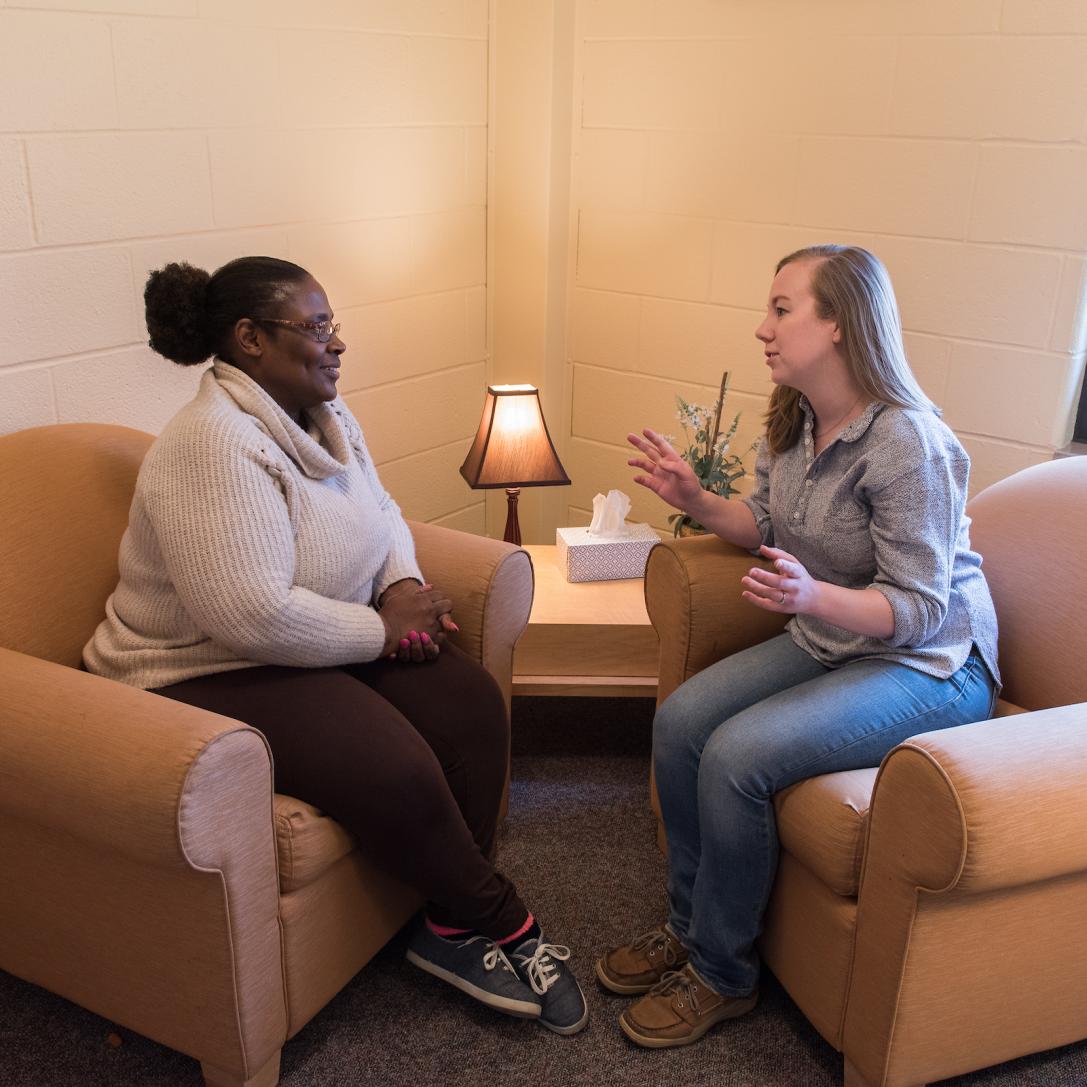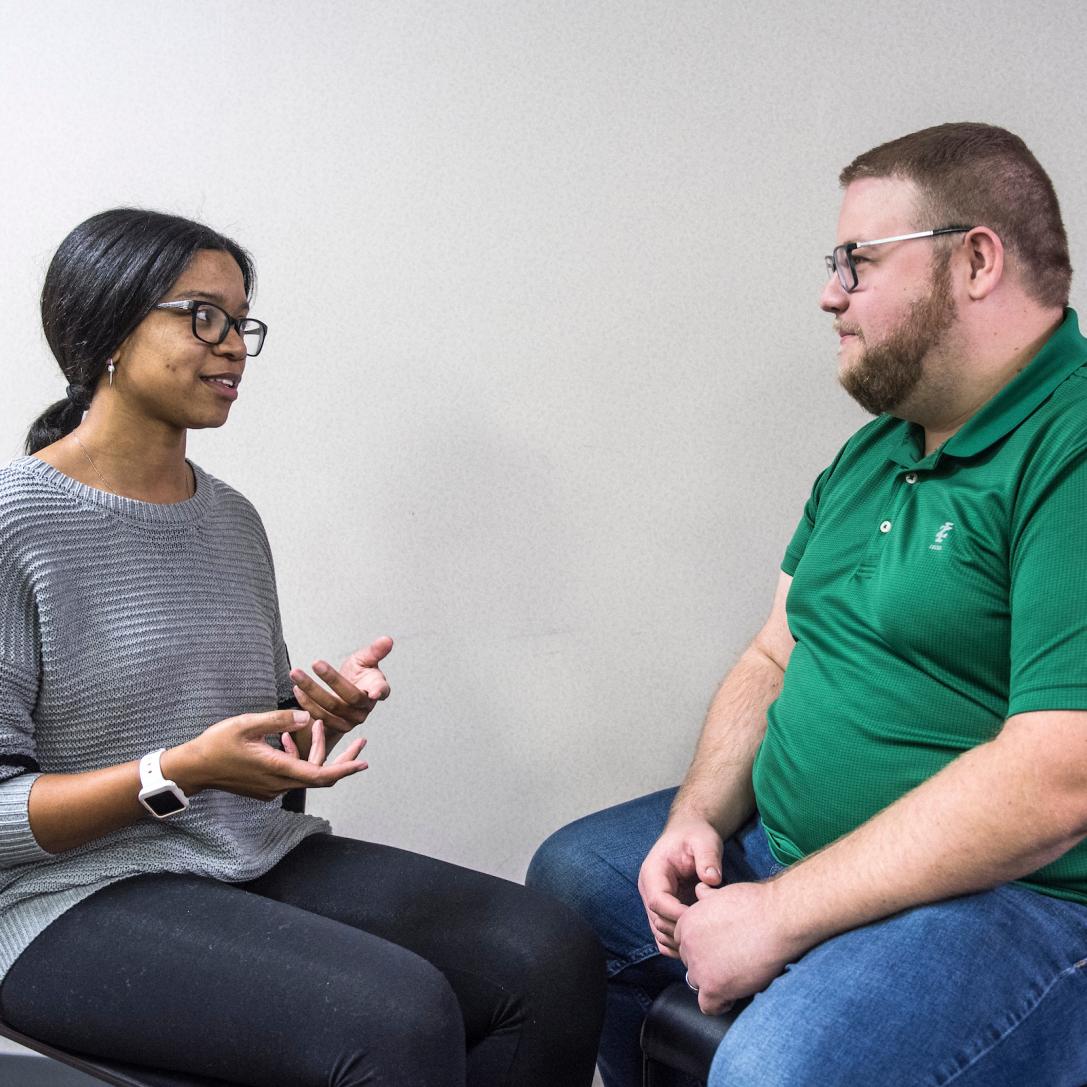
In Crisis?
Center for Student COunseling
Need Help Now?
If you or someone you know is in immediate, life threatening danger, don't hesitate- call 911.
Compassionate, crisis intervention trained campus police officers will be on their way to assist you!
Crisis and Emergency Situations
Know the signs.
These signs can help determine if you or someone you know is in crisis or needs urgent attention:
- Suicidal thoughts, intent, or plan to kill yourself
- Homicidal thoughts, intent, or plan to kill or seriously harm others
- Noticeable and severe changes in behavior, mood, relationships, or hygiene
- Depression symptoms like frequent crying, loss of pleasure in activities, overwhelming sadness or apathy
- Someone close to you has recently died or you have suffered another significant loss
- Difficulty meeting basic needs such as food, clothing, shelter, or sleep
- Having withdrawal symptoms from drugs or alcohol
- Experiencing uncontrollable panic and inability to calm down
- Feeling persistently unsafe, a sense of impending doom or danger, or that something or someone wants to hurt you or is out to get you
- A traumatic event occurred recently
When in doubt, make the call for help. Never try to handle a crisis situation alone. There are many options to help including the student counseling center, Timely Care, hotlines, and many local resources. Scroll down to learn more. Remember, if you believe your life or the life of anyone else is in imminent danger, call 911.


What to expect
Help is always close.
When you meet with a crisis provider they will:
- Ask you questions to understand your situation and assess your safety
- Assess your ability to cope, regulate your emotions, and soothe yourself
- Explain confidentiality as it relates to the crisis
- Help you make a plan to address your concerns
They may also:
- Refer you elsewhere on campus or to an agency off campus depending upon your needs
- Contact police, your emergency contact, or medical professionals to assist you or others*
*While we realize that some may be concerned about involving law enforcement, we work to identify the best options for health and safety. Our campus police officers are trained in compassionate crisis management. If the crisis provider has concerns about imminent risk to you or someone else, they may need to contact the local police department to assist with health and safety efforts. Although we will make every effort to engage you in the process, it’s important to be aware that some crisis situations may fall under the limits of confidentiality and potentially take place without your consent, as mandated by the State of Indiana and our legal and ethical considerations.
After-Hours resources
Find the help you need.
When the Center for Student Counseling is closed, Timely Care is here to help! Completely free to all students, Timely Care is available 24 hours a day, 7 days a week, through the summer and holidays. Timely Care providers can talk to students any time for emotional support and mental health help. All you need is your student login information and to sign the consents from your computer, tablet or smart phone. Choose the TALK NOW option to talk with a provider immediately, or select scheduled counseling if you would like to set up an appointment with a specific provider.
TimelyCare for PFW Students TimelyCare for IUFW Students
Anyone who needs help (students, employees, family members, friends, community members- anyone!) can call or text 988 for immediate mental health assistance.
Other local resources and hotlines are listed below. Please remember, these services are designed to help and want you to contact them! You are not alone. Please reach out.
If you need immediate help with an emergency requiring police, fire, or medical service presence, call 911. Explain that it is a mental-health call. Ask for a crisis intervention team responder.
National Alliance on Mental Illness Fort Wayne
Text “NAMI” to 741-741 to connect with a trained crisis counselor.YWCA Crisis Line for Domestic Violence
Call 260-447-7233 for assistance with domestic violence issues.Parkview Behavioral Health Institute
Offers access to a variety of emotional and mental well-being services. Inpatient and outpatient options are available depending on the level of care needed. Call the help line at 260-373-7500, 24/7.Parkview Emergency Services at Randallia
Offers the largest psychiatric emergency services in northeast Indiana, with a separate and special area for psychiatric patients to be evaluated and treated. Call 260-373-6000.Parkview SOS Mobile Intervention Team
Call the helpline at 260-373-7500 to speak to a crisis call specialist. The helpline will connect you with the SOS Team when an urgent or emergent need is identified. The SOS Team will respond by telephone to ask questions and determine the best option for treatment, deescalating crises over the phone whenever possible. The SOS Team will respond in person if the crisis cannot be resolved over the phone.Park Center
Offers comprehensive behavioral health services. A walk-in clinic is available to offer mental health-care for crisis. Call 260-481-2700 (ext. 1).Maple Heights Behavioral Health Offers inpatient programs for mental health, suicide, self injury, or addiction. 24 hour a day assessments are available in person at 3955 West Washington Center Road, Fort Wayne or by calling (844) 4201181.
Offers mental health treatment, drug and alcohol treatment, detox, and dual diagnosis programs in Fort Wayne. Call (888) 422-7691 for information.
Crisis Phone Line
- Dial or text “988”
- Available anywhere in Indiana
- 24-hour support
- Connect with a specialist trained in suicide and crisis prevention
- Available to those who are worried about a loved one who may need crisis support
Crisis Text Line
- Text “START” to 741-741
- Available anywhere in the United States, anytime, about any type of crisis event
- Available to everyone for free
- 24-hour support and information via text
- Live, trained crisis counselors receive the texts and responds quickly
- Services are also available in Spanish
The Trevor Project
- Call 866-488-7386 or text “START” to 678-678
- Crisis intervention and suicide prevention lifeline for lesbian, gay, bisexual, transgender, and questioning youth
- 24-hour national support
Available to anyone regardless of sexuality or gender identity
Veterans Crisis Line
- Call or text 988 and press 1 OR
- text 838255 OR
- visit the Veterans Crisis Line website to chat online
- Lifeline Crisis Chat: Available through the National Suicide Prevention Lifeline, this chat is available 24/7 within the United States and its territories. Go to crisischat.org and click on “Chat Now” to get started.
- TrevorChat: Free, confidential, and secure online chat provides live help by trained volunteers. Available 24/7/365. This service is designed to be used with a computer. If you prefer to use a smartphone, learn more about using Trevor Text.
- National Sexual Assault Online Hotline: Chat online with a trained staff member who can provide confidential crisis support. Visit hotline.rainn.org/online to get started.
- Vets4Warriors: This is for anyone currently serving in the military, veterans, and their families and caregivers. It is confidential, anonymous, and available 24/7. Visit vets4warriors.com to receive personalized peer support from a veteran.

Create a Safety Plan
A plan for when you feel directionless.
Follow these steps to create a safety plan:
- Learn warning signs
Be aware of thoughts, images, moods, situations, and/or behaviors that indicate a crisis may be developing. - Identify internal coping strategies
These are things you can do to take your attention and mind off your crisis without contacting another person (e.g., relaxation techniques, physical activity, listening to music, and mindful techniques). - Identify people and social settings that provide healthy distraction
Seek them out if you cannot manage your stress while alone. - Identify people whom you can ask for help
Seek them out if you cannot manage your stress while alone. - Find ways to make your environment safe
Examples include preventing access to firearms and weapons, throwing sharp objects away, pouring out or throwing away substances, asking a friend to keep dangerous items in a difficult-to-access location. - Identify professionals and agencies that can help you
Identify who you can contact before and during a crisis. - List the things most important to you
These are the things that are worth living for.